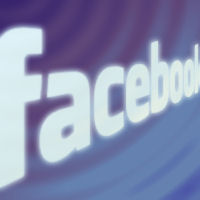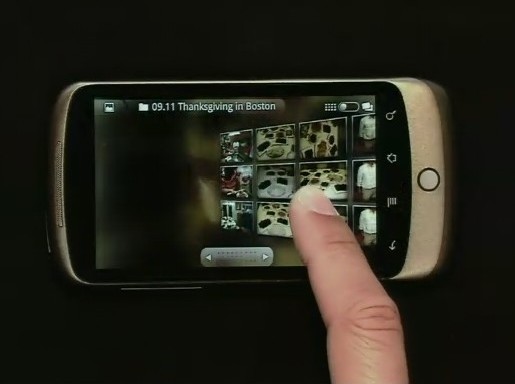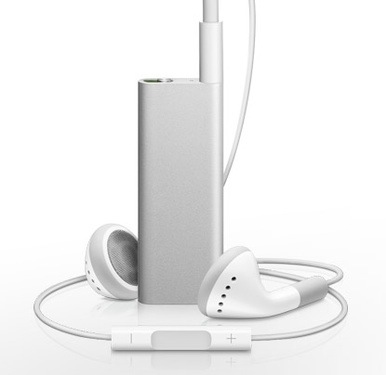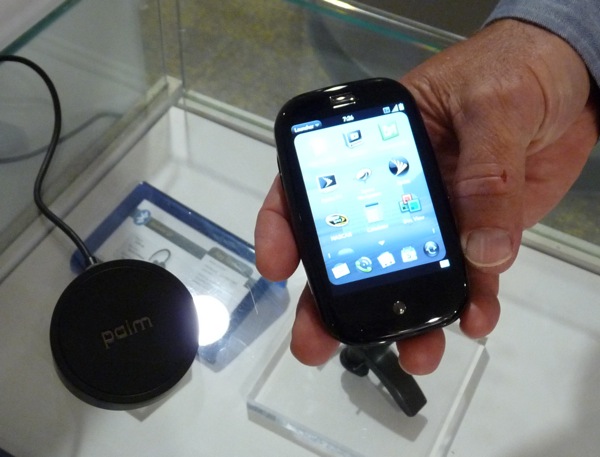
Now, the great Facebook security giveaway ...literally
Facebook wants to be your new security maven.
Go ahead. Have a good laugh. I certainly did, after I first learned about Facebook's plan to partner with security provider McAfee to boost end-user security on the often-attacked social media platform.

Nexus One: More than a phone, less than a game-changer
Call me hopeful that Google's announcement of Nexus One Tuesday helps it positively influence the evolution of an open, innovative wireless market. Call me similarly hopeful that Google's move into hardware -- a bold decision that builds on its earlier success facilitating the creation of the Android mobile operating system and orchestrating the Open Handset Alliance's go-to-market plans -- will drive the success of the next truly competitive smartphone platform.
But as hopeful as I am, I'm not yet convinced that one phone can ever deliver all the goods. Nexus One is hardly the earth-shattering, apocalyptic shot that will catapult the smartphone market into next week.

Hype this! Apple's marketing puppet show continues
We segue into 2010 with rumors swirling around the biggest mega product announcement since the iPhone. If Apple's mythical tablet device -- the "iSlate," if insiders and analysts are to be believed -- is in fact announced sometime in January, Apple fans will once again dance in the streets before lining up in the middle of the night, wallets in hand, ready to buy into the latest must-have doodad from Cupertino.
Not that I'm one to make resolutions. They are, after all, pointless promises that are inevitably broken before the last bit of confetti has been swept out of the gutters in Times Square. But if I ever had to make one, it would be to ban the Apple hype machine permanently from our midst. The noise from all this speculation is hurting my head, and I just want it to stop.

Broken Berry: RIM runs out of free passes
Like the other over-50% of smartphone-owning people in North America, I'm quite the fan of my BlackBerry. Even in an era when newer kids on the block -- namely Apple's iPhone and Google's Android -- garner more accolades and headlines for having slicker interfaces and cooler (and more) apps, the BlackBerry platform remains the safe, reliable choice that's good enough for most consumers and businesses. Despite analyst predictions that the BlackBerry will someday be reeled in by the upstarts, Research In Motion continues to grow and dominate the market it practically defined a decade ago.
We may want to revisit the "reliable" bit, though. After a week from hell marked by two highly publicized continent-wide outages, BlackBerry users are asking themselves whether this is the new normal, and why BlackBerry devices seem especially vulnerable to this kind of mass outage when competing platforms like iPhone and Android are not.

Shut up and drive: The menace that is mobile technology
I like my toys behind the wheel as much as everyone else. Between my GPS, iPod, BlackBerry, and DVD player, I've got enough technology to avoid getting lost, stay entertained, stay connected, and keep my seat-belted kids from beating each other silly. I have no idea how my Luddite parents survived the Dark Ages before in-car electronics, and I'm not sure I ever really want to know.
Before setting off on a drive, it takes me about five minutes to get all my doo-dads connected and working. My wife, bless her, usually gives me a small grace period for fiddling before her patience wears thin.

The hang-up with the Google Phone
Have you ever noticed that the next great über-device is always something ahead that people want, but rarely -- if ever -- something in front of them that they have? It almost doesn't matter what that device is, just as long as the rumor mill is so overhyped and over-amped that device-tech followers can't focus on anything else. It's almost as if the device is sustained by its lack of existence, by its mythology rather than its technology. As long as it's "out there," rather than right here, it becomes the single focal point for anyone who lusts after it, and fans literally count the days until it hits the shelves and changes their lives forever. "Forever," in this case, being about 38 minutes, until the rumor mill cranks back up again.
It's like a great party, where reality doesn't seem to matter much as long as everyone's having a good time.

The wireless data paradox: AT&T asks you to use less data
So let me get this straight: AT&T says iPhone users are using too much data. And to ease the resulting strain on its network, the carrier wants to...(ahem)...encourage its customers to throttle back on YouTube, live-streamed radio, and other media-rich apps. A week after playing the good guy with "Mark the Spot," a handy iPhone app that lets users report on coverage dead zones, AT&T is reversing any goodwill gained by warning heavy users they may soon face extra charges for their data gluttony.
Someone please tell me this is little more than a badly thought-out joke.

iTunes gets cloudy: Will a web-ified future save iTunes or kill it?
I'm not at all surprised that Apple's recent purchase of Lala Media, a previously-ignored music streaming outfit that likely would have flatlined otherwise, is already generating rumblings of impending major change to one of the most pivotal brands in its arsenal. While it was the iPod and iPhone devices that first established Apple's consumer product cred and later sealed its long-term position on the techno-cultural podium, it was iTunes that turned the process of buying, managing and consuming content from a chaotic mess into something that ultimately killed the local record store and permanently changed the entertainment landscape.
If only the world never changed

Not the first, not the last, technology predictions for 2010
December never fails to make me cringe. I know full well that journalists will be filling my inbox all month long with countless requests to guess what next year's hot technologies will be.
I can understand why they would. Trying to predict what comes next in tech has always been an important way for businesses and consumers alike to make the right decisions about what to buy -- and what to avoid -- in the months ahead. Like the groundhogs who have been doing something similar for generations, we all want to know what's coming so we can plan more effectively for the future.

See ya later, WinMo: Microsoft's mobile strategy needs a reboot
There are lots of winners in the wireless wars. Microsoft, unfortunately, isn't one of them. Thirteen years after it first introduced Windows CE, its homegrown OS for small devices finds itself perilously close to oblivion. With market share for Windows Mobile OS in freefall, vendors fleeing and its mindshare in meltdown, now is as good a time as any for the company to dive into a full-on re-think of its mobile strategy.
Or an exit from the market until it can figure out what makes the most sense.

Not-so-mobile battery life: Time to force the issue
I was having a lovely conversation last week with a woman who had just upgraded to a Palm Pre. She's been an avid user of Palm products since the company's first-generation PalmPilots defined the PDA market, and was thrilled to see her beloved Palm finally get back into the game with a modern smartphone, a competitive OS, and a reasonably solid-looking business plan.
She waxed poetic about its user interface, the slickness of its multitasking, the smoothness of its application integration, and its great camera. I nodded appreciatively as she took me through her experience. I'm an old Palm PDA addict, too, and I often find myself secretly rooting for the company to overcome its demons and regain, if not market dominance, then at least something that'll allow it to survive and thrive as a smaller kind of innovative agent provocateur in a larger smartphone market.

The fallacy of Facebook privacy
Natalie Blanchard is either the most naïve Facebook user in the history of the social networking service, or an incredibly unlucky woman who just can't seem to get back on her feet. Whatever title she ends up wearing, she's quickly becoming the poster child for caution in the social media age. Unless you belong to a mysterious sect that specifically bans any form of online activity, either learn her difficult lesson or risk suffering a similar fate.
The resident of Bromont, Quebec, Canada suffers from severe depression and has been on long-term disability leave from her job at IBM for over a year-and-a-half. She had been receiving benefits from her company's insurer, Manulife, until earlier this fall when the checks suddenly stopped coming. When she called her insurance agent to find out why, she was told the company had looked up her supposedly private Facebook account, and found pictures of her posing with Chippendale dancers at a bar, attending a birthday party, and enjoying a beach vacation.

Where there's smoke: Apple warranty stance raises troubling questions
I'm the last person who would ever come out in support of smoking. It's a noxious, nasty habit that according to the US Centers for Disease Control kills 443,000 Americans every year. The CDC says smoking is the root cause of over 30% of all cancer-related deaths, 80% of all lung cancer-related deaths, and 80% of deaths due to chronic obstructive pulmonary disease.
These are big, ugly numbers, for sure. But I'll be selfish and focus only on one: My father was a secret smoker for years -- a secret that ultimately landed him in hospital with a compromised heart, and a secret that ultimately killed him.

Tuning out the tablet: Time to give the endless speculation a rest
I'm sure I'm not the only one who looks at renderings of Apple's long-rumored tablet - or iTablet, or whatever name the faithful have assigned to it this week - and wishes the FedEx truck would pull up to my door with an early demo in time for the holiday season. I'm sure I'm also not the only one who's ready for the endless speculation to, well, end.
I don't think I've ever seen an unreleased product generate so much discussion without so much as a peep from the vendor of record. I realize the frenzied speculation is as frenzied as it is because we're talking about Apple, and that if this were any other company, we'd collectively yawn our response before moving on to the next big thing. This is a company that seems unique in its ability to generate so much activity around what is, for now at least, vapourware. And while I appreciate the value of healthy exchanges in advance of a major product launch, I can't shake the feeling that the never-ending iTablet fever is just a little much, and that we'd all be doing ourselves a favor by giving it a rest and waiting until Apple actually ships a working product.

After the Psystar verdict: Send in the clones
I feel a little sorry for Psystar. But only a little, because the Mac clone maker should have realized it couldn't rewrite history.
Its latest courtroom loss -- where a US District Court judge last week sided with Apple and said Psystar can no longer sell hardware based on hacked versions of Mac OS X -- will in all likelihood bring the whole concept of clones to an inglorious close. And none too soon.
